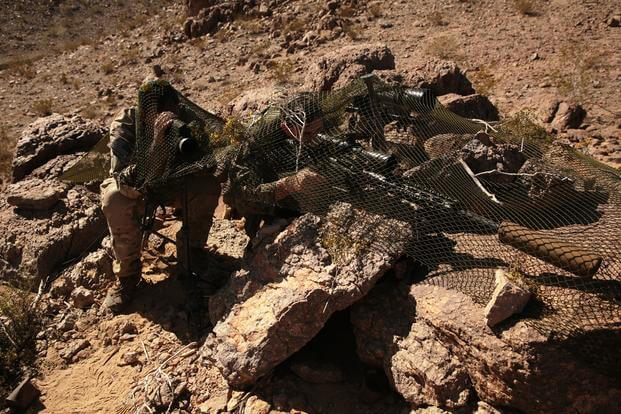The U.S. military in Baghdad said Wednesday the deployment of Special Operations teams for raids and other small-scale combat missions against the Islamic State will go ahead despite Iraqi political opposition.
Special Ops forces will be directly involved in combat as "trigger pullers" in the new deployment but the general thrust of President Barack Obama's prohibition against "boots on the ground" combat will be maintained, said Army Col. Steve Warren, a spokesman for Combined Joint Task Force-operation Inherent Resolve.
"Some of this is semantics," Warren said in pressing back against charges that Obama had gone back on his word by approving the deployment of an "Expeditionary Targeting Force" that would be based in Irbil, the Kurdish capital in northern Iraq.
"A raid is a combat operation, there's no way around that," Warren said, but raids were in no way comparable with major ground operations to seize and hold territory such as the U.S. invasion of Iraq more than a decade ago.
"We're not talking about the 2003 ‘Thunder Run' up to Baghdad-- that's ground combat," he said. "This is something completely different, these are raids.
"So yeah, more Americans will be coming here to Iraq and some of them will be conducting raids inside of both Iraq and Syria," Warren said. The ones actually conducting the raids will number in the "double digits," he said.
The strength of the expeditionary targeting force was expected to be about 200 personnel, with about 100 coming from a new deployment that will add to the estimated 3,550 U.S. troops now in Iraq. Others will be assigned to the targeting force from Special Ops troops already there.
The force will be tasked with conducting raids against the Islamic State in Iraq and Syria, or ISIS, to kill or capture high-value insurgents and to free hostages.
The teams will also gather intelligence for coalition aircraft targeting ISIS but they will not be involved as joint terminal attack controllers, or JTACs, on the front lines to call in airstrikes, Warren said.
However, Air Force Secretary Deborah Lee James said that the new teams could be assigned JTACs roles as their missions develop.
"I'll give you my best speculation about what these teams … might look like," she said Wednesday at the National Press Club. "Obviously they have to get from point ‘A' to point ‘B' and that's the job of the mobility forces. As for battlefield airmen, JTACs could well be a part of it, but the details, precisely, are not yet worked out."
In a separate deployment, Defense Secretary Ashton Carter said last month that "fewer than 50" Special Forces troops would be sent into northeastern Syria to serve as advisers behind the front lines with rebel "Syrian Democratic Forces (SDF)."
Those troops were barred from combat or serving as JTACs. Warren would not confirm whether they were on the ground yet in Syria.
In announcing the formation of the expeditionary targeting force, Carter said in testimony Tuesday to the House Armed Services Committee, "This is an important capability because it takes advantage of what we're good at. It puts everybody on notice in Syria that you don't know at night who is going to be coming in the window."
Carter's announcement appeared to catch Iraqi Prime Minister Haider al Abadi off guard, though Secretary of State John Kerry and other U.S. officials said Abadi had been briefed on the targeting force weeks in advance.
In a statement, Abadi said "there is no need for foreign ground combat troops" in Iraq. He said that U.S. Special Ops troops "can only be deployed subject to the approval of the Iraqi Government and in coordination with the Iraqi forces and with full respect to Iraqi sovereignty."
Abadi's political opponents warned that he could be ousted from office. "If Abadi makes a unilateral decision to approve the deployment of American Special Forces, we will question him in parliament. He is aware that a questioning could lead to a vote of no confidence," said Mohammed Naji, a lawmaker from the Badr Organisation, Reuters reported.
However, U.S. officials stressed that the new Special Ops force will deploy at Iraq's invitation and partner with the Iraqi Security Forces when it acts in Iraq. "We've talked extensively to the Prime Minister (Abadi) about this," Warren said.
--Richard Sisk can be reached at Richard.Sisk@military.com.





























